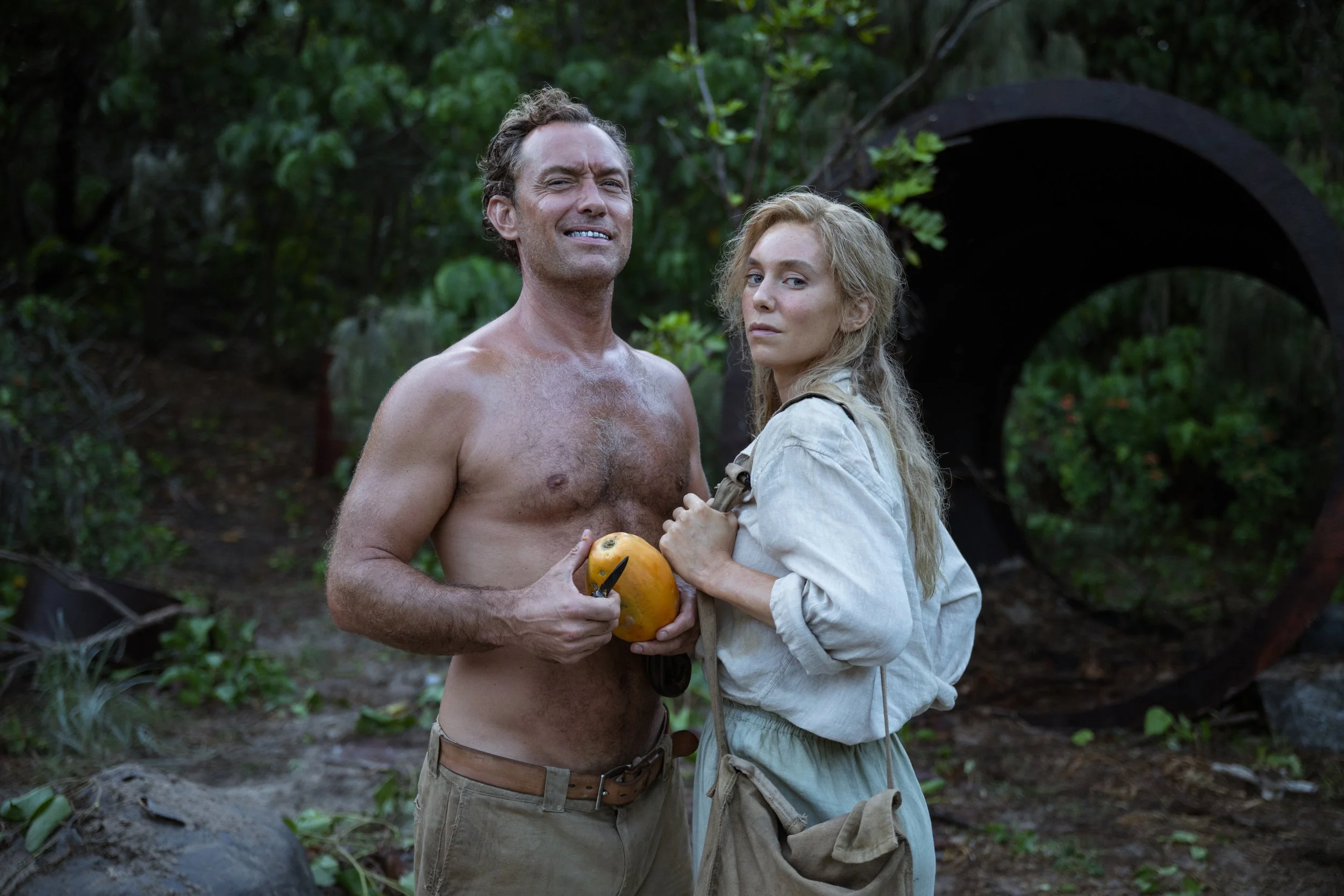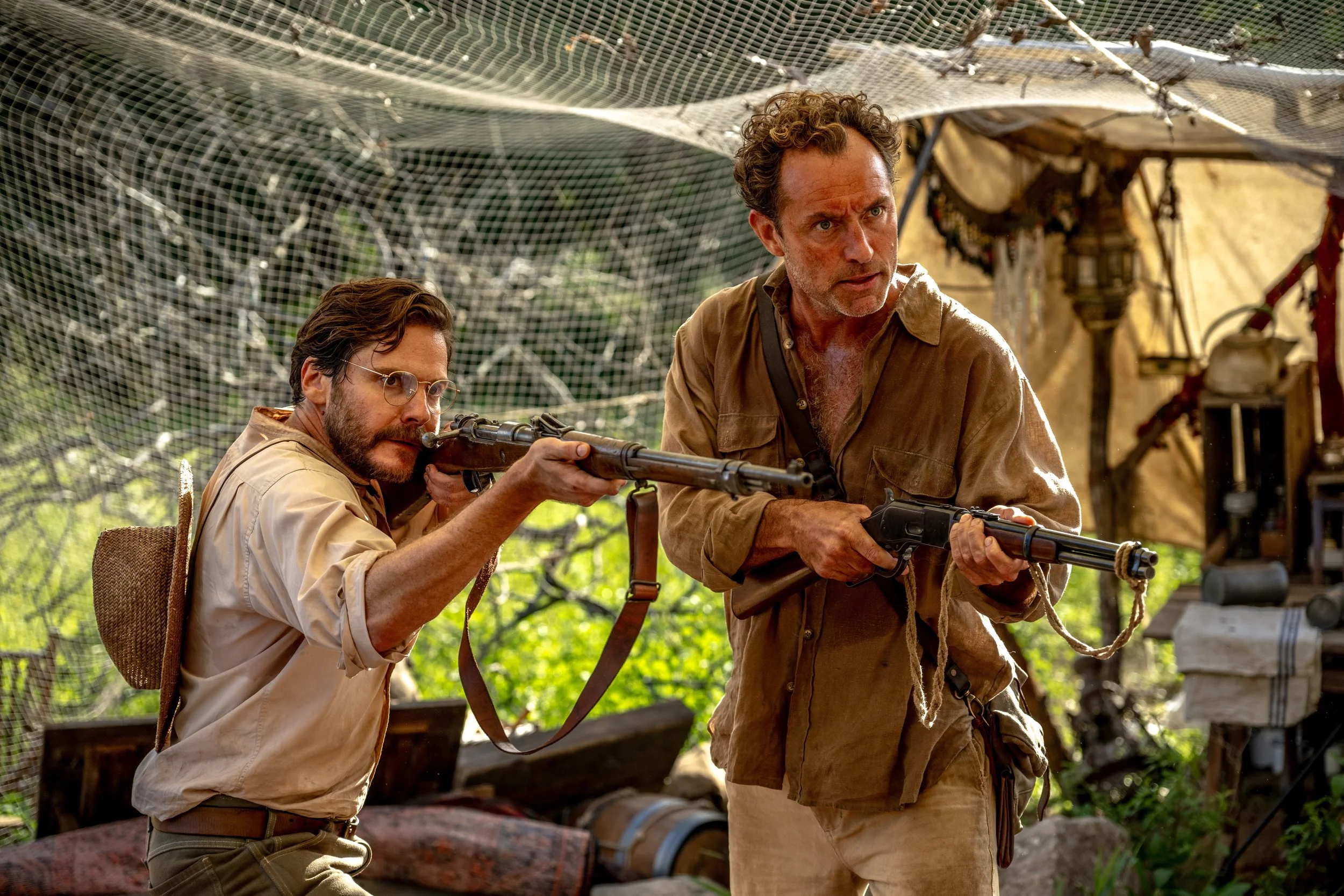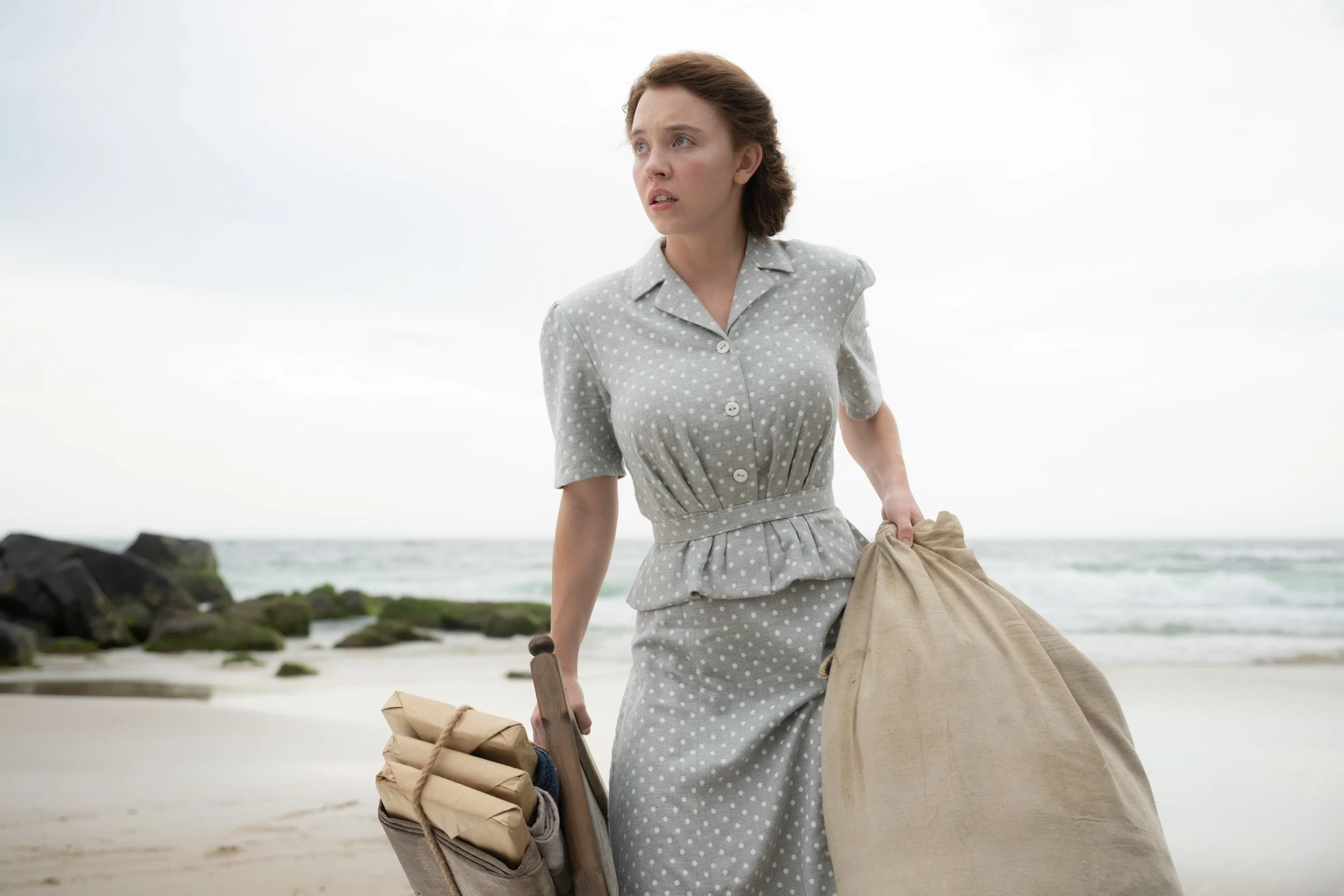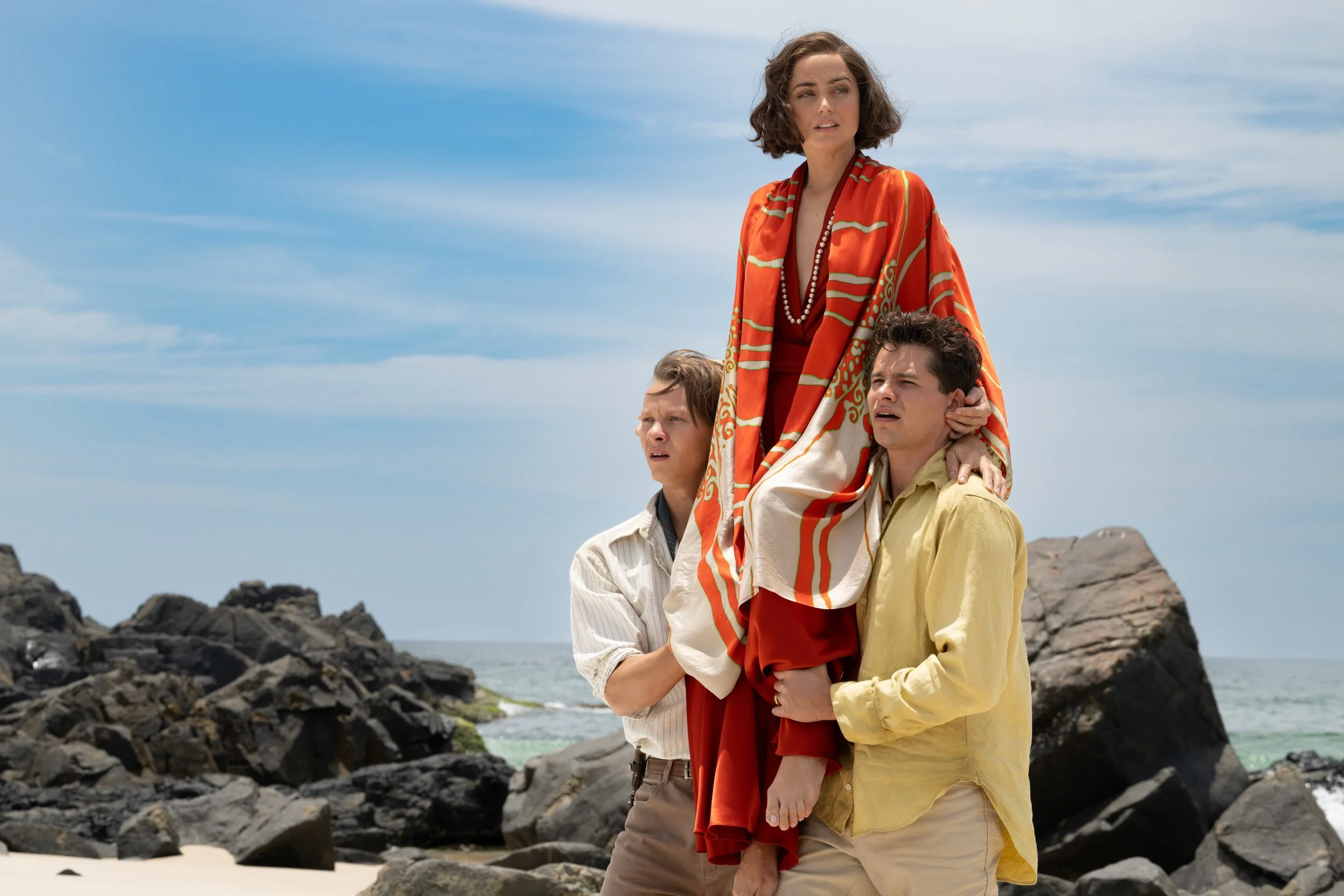Ron Howard’s Eden is a survival thriller that blends prestige with pulp, historical truth with cinematic spectacle. Produced by Brian Grazer, Howard, Karen Lunder, Stuart Ford, William M. Connor, and Patrick Newall, the film assembles an impressive cast—Jude Law, Ana de Armas, Vanessa Kirby, Daniel Brühl, and Sydney Sweeney—for a story drawn from the real-life settlers of Floreana Island in the Galápagos during the 1930s.
On paper, the premise is irresistible: a band of idealists flee modern civilization for paradise, only to discover that the most dangerous predators are themselves. The film opens with striking natural vistas, and Howard and his cinematographer lean hard into the alien beauty of the Galápagos, aided by production design that is meticulous in its period detail. Hans Zimmer’s score heightens the sense of dread, layering the beauty with unease.
Where Eden excels is in the slow unraveling of its characters. Jude Law gives one of his strongest performances in years as Friedrich Ritter, a man whose intellectual ambitions dissolve into mania. Watching him clack away at his typewriter with a Jack Torrance–like fervor feels both frightening and grimly funny. Vanessa Kirby lends Ritter’s partner Dora Strauch both fragility and resilience, while Daniel Brühl provides quiet steadiness as Heinz Wittmer.
The film’s women, however, are a mixed bag. Sydney Sweeney, playing Margret Wittmer, seems miscast at first since her all-American presence feels jarring in 1930s Europe. Still, she throws herself into harrowing sequences, including an almost unbearable childbirth scene that plays out under the threat of wild dogs. Her commitment pays off, even if her accent occasionally falters. Ana de Armas, on the other hand, is deliberately grating as the self-styled Baroness Eloise Wehrborn de Wagner-Bosquet. De Armas embraces the role’s narcissism with a performative bravado that will either fascinate or repel. She is by design the island’s most theatrical presence, though some may find her performance distractingly overblown.
Howard stages several tense, brutal set pieces such as the robbery of the Wittmers’ supplies, Sweeney’s childbirth under siege, and sudden bursts of violence that shatter the fragile alliances. Once the descent into chaos begins, the film rarely lets up. By its climax, the colony has devolved into betrayal, madness, and death, with Law’s transformation into a near-unrecognizable figure complete with rotted teeth driving home the “devolutionary” arc.
Still, the pacing is uneven. The film takes too long to get moving, with a sluggish first act that belabors the setup. At over two hours, it sometimes feels stretched thin, and the narrative’s historical roots do not always mesh smoothly with Howard’s thriller instincts. Some viewers may wish for more ambiguity and less Hollywood melodrama.
That said, Eden has staying power. Seeing real archival footage of the settlers during the credits grounds the chaos we have just witnessed, reminding us this is not just an allegory but history. The biblical allusions are obvious. This is Eden as paradise lost, corrupted by human pride and suspicion, but Howard leans into them effectively.
In the end, Eden is a flawed but engrossing survival thriller. Its performances are uneven but occasionally electrifying, its pacing inconsistent, but its high points unforgettable. If not quite a masterpiece, it is still a fascinating addition to Howard’s filmography: a brutal story of idealism turned nightmare, carried by a powerhouse cast and a director who knows exactly how to frame both beauty and horror.
Jessie Hobson






